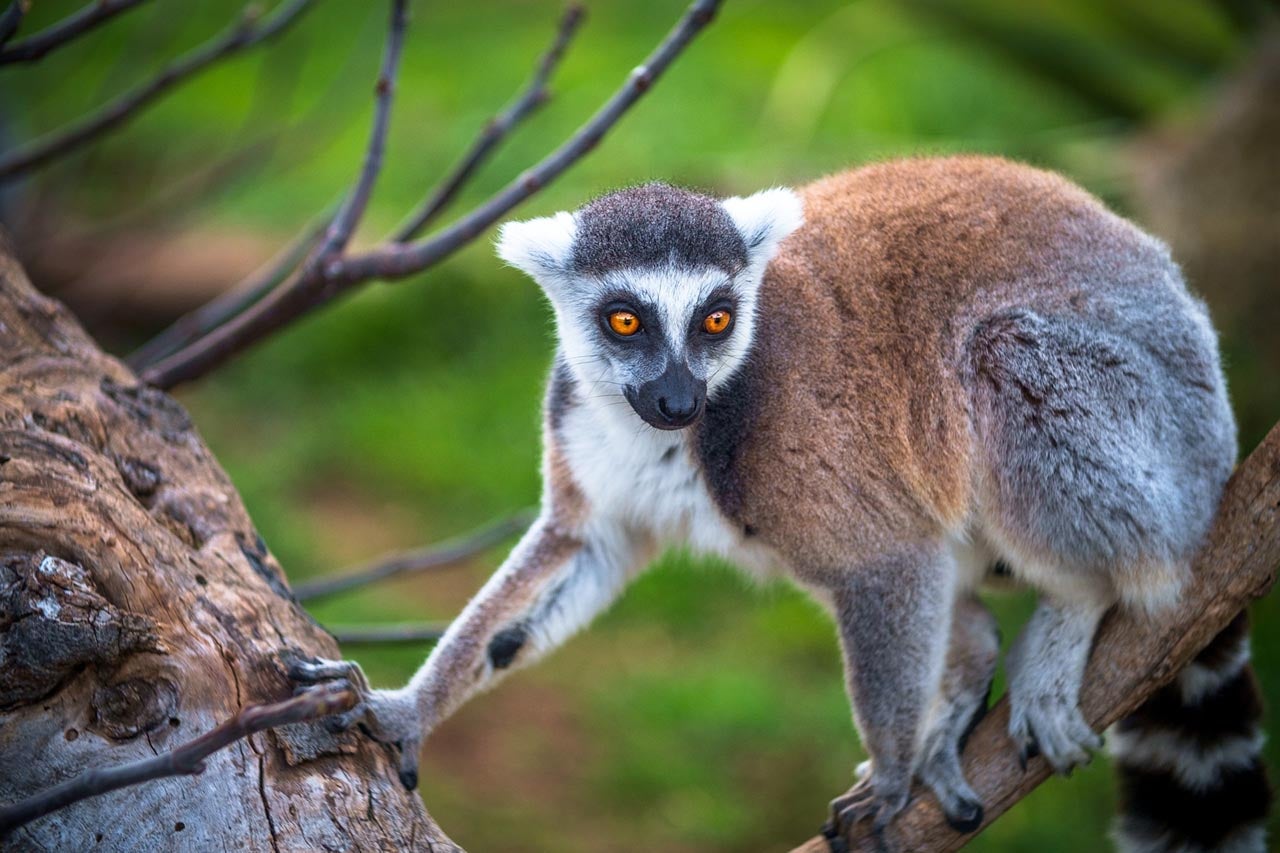Even as a young child growing up in Madagascar, Onja Razafindratsima was fascinated by lemurs – the charismatic big-eyed creatures that are only found in the African nation’s natural habitats. Due to widespread logging practices on the tropical island, however, the lemur population has declined dramatically over the years, with 94 percent of lemur species now endangered. That’s what turned Razafindratsima’s fascination into intention, eventually driving her to pursue a doctorate in the United States and a career in ecology and conservation biology.
“During my Ph.D., I was interested in the roles that lemurs play in their habitats, and how the system may change if they eventually disappear,” says the visiting assistant professor in the College of Charleston’s Department of Biology. “I led a team that followed 24 groups of three different lemur species, keeping watch on them in the trees. We followed them and looked at what they ate and what they dispersed when they defecated. I was especially interested in the tree seeds and how they were spreading them.”
The data she brought back have demonstrated that lemurs serve critically important roles in Madagascar’s diverse rainforests. Her research was recently published in the International Journal of Primatology.
“I looked at how the loss of lemurs might affect the forest’s potential for carbon storage by simulating different scenarios of changes in tree composition and characteristics in the forest,” says Razafindratsima, who worked with a team of researchers from Rice University in Texas and from Centre ValBio in Madagascar. “The large trees in the area often have large seeds. And, because they have large seeds, they rely on the larger lemurs to disperse their seeds to where they can grow. If we lose these large lemurs, we lose the large trees, too. They go hand in hand.”
And that means a decline in carbon stock, as larger trees can absorb and store more carbon from the atmosphere. These findings have important implications for initiatives like the UN-REDD Programme, a United Nations collaborative that incentivizes sequestration of carbon through tropical forest conservation. The take-home lesson is that saving trees is not enough to conserve Madagascar’s ecosystem – it must be approached more holistically.
“People don’t realize how important these interactions are, but we depend on the lemurs for the trees, and the lemurs depend on trees – it goes both ways,” says Razafindratsima. “The goal is to make this connection, increasing awareness and concern. And hopefully, that will turn into action.”





